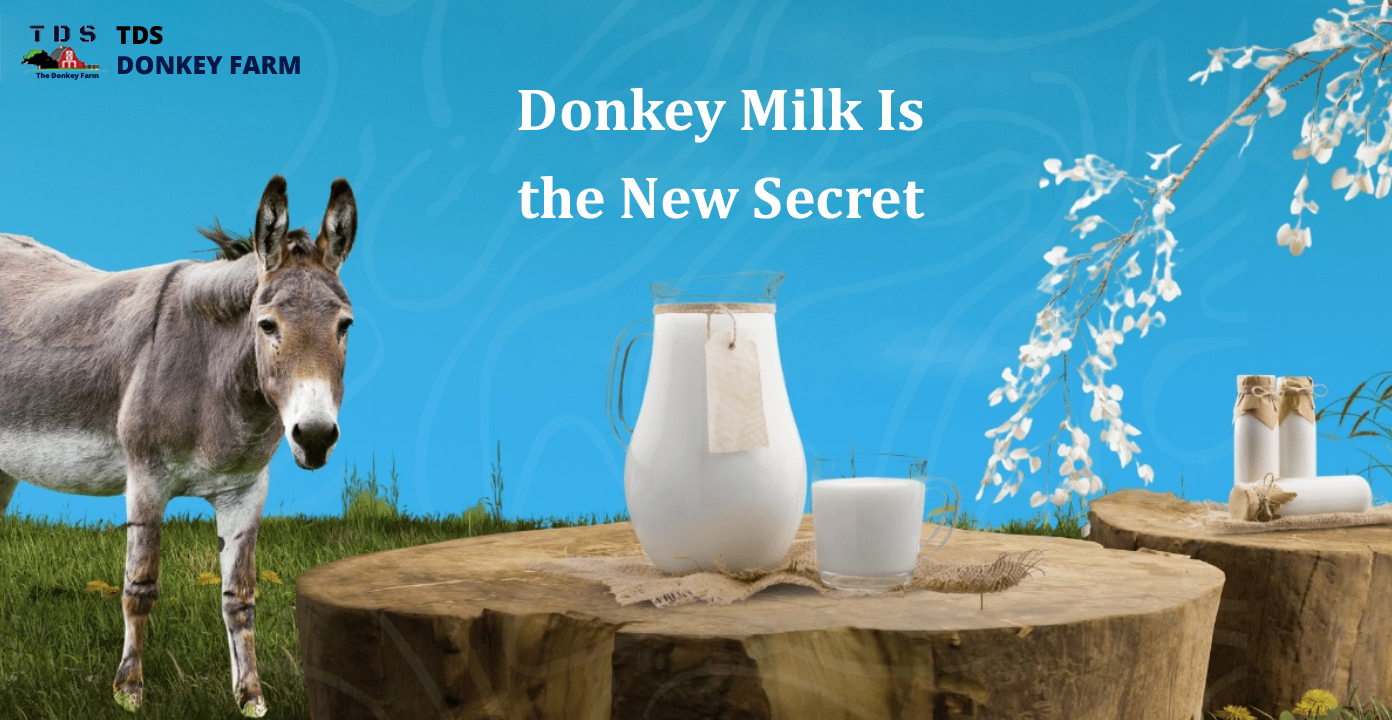
Long before the shelves were filled with chemical-based beauty serums and synthetic cleansers, there existed a secret—pure, simple, and natural. Donkey milk. Legends say Cleopatra bathed in it daily to preserve her unmatched beauty. Centuries later, this ancient elixir is resurfacing, not as myth but as a scientifically proven powerhouse of nutrients.
Today, TDS Donkey Farm, a recognized exporter and supplier of pure donkey milk, continues this ancient legacy by bringing nature’s most nurturing milk to the modern world. Their approach isn’t industrial—it’s artisanal. Every drop is collected with care, ensuring that the integrity of the milk remains untouched from farm to bottle.
Donkey milk is a biological marvel. Unlike other animal milks, it closely resembles human breast milk in both pH and composition, making it gentle, hypoallergenic, and incredibly compatible with human skin and digestion.
Here’s what makes it a natural wonder:
Dermatologists and cosmetic formulators now turn to donkey milk for its biochemical balance. When used in skincare products—creams, soaps, and lotions—its natural proteins and enzymes promote dermal regeneration, increasing elasticity and reducing fine lines.
Clinical studies have shown that donkey milk enhances collagen density by stimulating fibroblast activity, the skin’s natural repair mechanism. This results in reduced wrinkles, smoother texture, and a youthful glow without the harshness of synthetic ingredients.
Located amidst serene pastures where donkeys are nurtured in a stress-free environment, TDS Donkey Farm stands as a symbol of ethical and sustainable dairy craftsmanship. As a trusted exporter and supplier, the company emphasizes purity, hygiene, and transparency.
Every collection follows these steps:
Through these measures, the farm maintains the integrity of natural donkey milk, delivering a product that retains its authentic flavor and healing potential.
Let’s decode the composition of this natural treasure in simpler yet technical terms:
1. Skincare Industry
Donkey milk is revolutionizing cosmetic formulations. It serves as the base ingredient in premium creams, cleansers, and soaps designed for dry or mature skin. Its natural lactic acid aids exfoliation, while peptides boost skin elasticity.
Because of its similarity to human milk, it’s used in specialized dietary products for infants, elderly individuals, and immune-compromised patients. It aids digestion, improves gut flora, and enhances nutritional absorption.
Rich in antimicrobial peptides, donkey milk is used for eczema, psoriasis, and dermatitis management. Studies suggest that regular application helps reduce inflammation and promotes wound healing.
High-end restaurants across Europe have begun experimenting with donkey milk cheeses and yogurts, appreciating its delicate sweetness and nutritional profile.
For TDS Donkey Farm, donkey milk isn’t just a commodity—it’s a cause. Their philosophy revolves around compassionate animal care, scientific validation, and sustainable production.
Every donkey is treated as part of the family. The farm’s handlers ensure balanced nutrition, proper shelter, and humane treatment. As an exporter and supplier, TDS Donkey Farm prioritizes transparency, adhering to international standards of hygiene and welfare.
Their mission is simple:
“To make nature’s rarest milk accessible to everyone who believes in purity, wellness, and timeless beauty.”
The rarity of donkey milk isn’t only due to its limited production—female donkeys produce far less milk than cows or goats—but also because of its unparalleled composition.
Each drop contains the harmony of nature’s design—proteins that mimic human enzymes, fatty acids that soften the skin, and minerals that replenish the body.
That’s why dermatologists call it “liquid gold”—a term that symbolizes both its scarcity and its rejuvenating potential.
In recent years, the global donkey milk market has seen exponential growth, especially in Europe, Japan, and India. With consumers shifting toward chemical-free skincare and natural health remedies, the demand for authentic donkey milk is set to rise sharply.
TDS Donkey Farm is positioned at the forefront of this revolution—bridging ancient knowledge with modern innovation. By exporting pure donkey milk and related formulations, the company contributes to a cleaner, healthier, and more sustainable global lifestyle.
1. Is donkey milk safe for everyday consumption?
Yes, pure donkey milk is safe for daily use when sourced hygienically. It’s low in fat, rich in nutrients, and gentle on the digestive system.
2. Can people allergic to cow’s milk consume donkey milk?
In most cases, yes. Donkey milk is hypoallergenic and often tolerated by people with cow milk protein allergies.
3. How does donkey milk benefit the skin?
It deeply hydrates, stimulates collagen production, and reduces fine lines, pigmentation, and inflammation.
4. How should donkey milk be stored?
Fresh milk should be refrigerated at 2–4°C and consumed within 3–5 days. Powdered or freeze-dried forms have a longer shelf life.
5. Is donkey milk suitable for making soap or cream at home?
Yes, it can be used as a natural base for soaps, lotions, and face masks due to its creamy texture and vitamin-rich composition.
6. Why is donkey milk more expensive than cow milk?
Donkeys produce very little milk daily—around 300–500 ml—making it a rare and precious product, hence the higher cost.